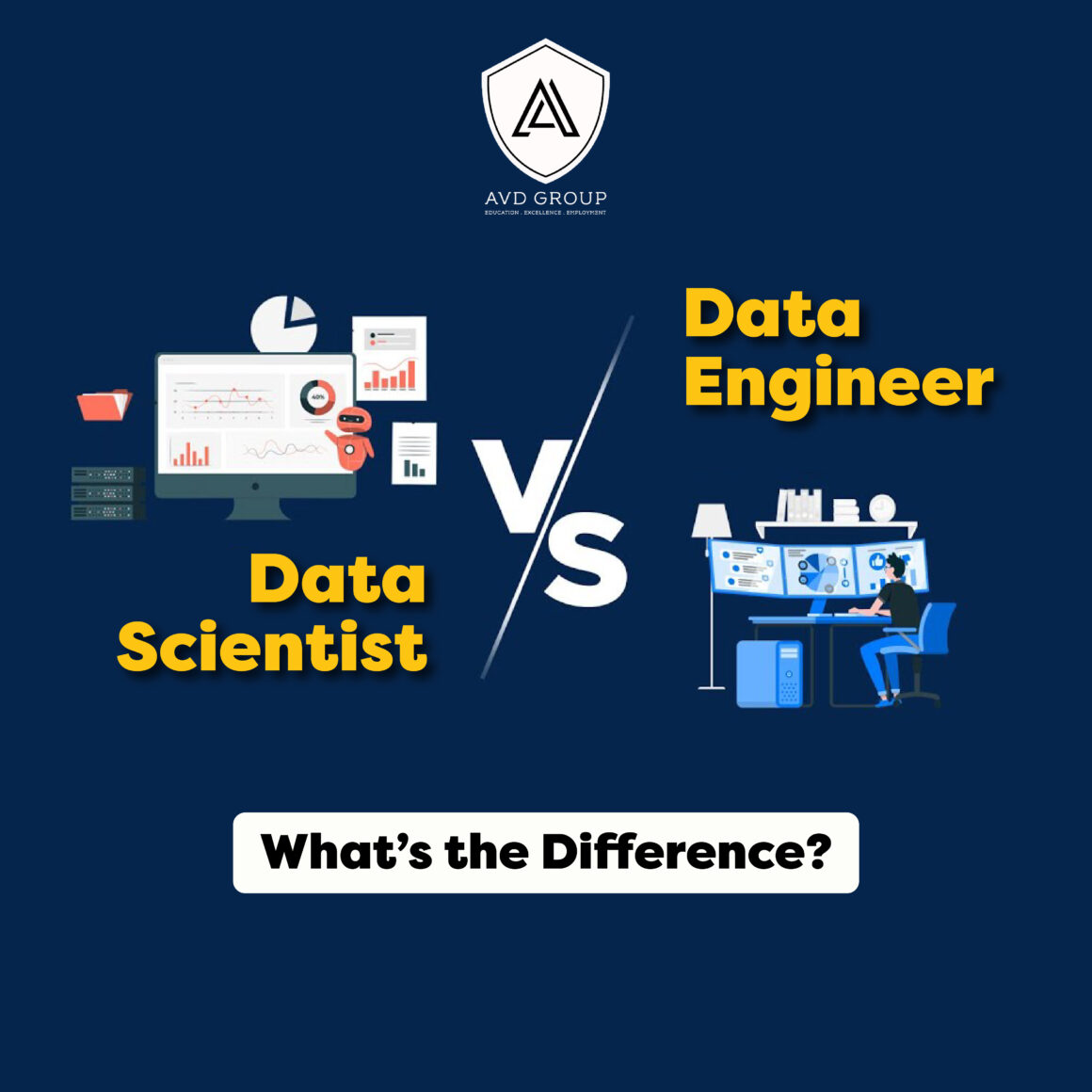In this data-driven world, the roles of data scientists and data engineers are in most demand. Although both positions are vital to data management and value extraction, their duties, skill sets, and objectives often differ. If you want a job in data management, you can enroll in data science or data engineering classes to gain the necessary skills.
Keep reading to learn more about these jobs, including the roles and responsibilities, the education qualification needed, the tools used, and more.
1. Role And Responsibilities
Data Engineer
Data engineers are experts in data who get the data infrastructure ready for analysis. Their main goal is to build data pipelines allowing real-time analytics by integrating several big data technologies. Their primary concerns are data storage, security, resilience, scalability, and format preparation for raw data production readiness. The roles and responsibilities of a data engineer include tasks with data such as:
- Planning
- Development
- Testing
- Integration
- Management
- Optimization
Data Scientist
The primary focus of data scientists is to derive new insights from the data that data engineers have prepared. They are responsible for generating predictions and trends for the company by using their expertise in statistics, data analytics, and visualization, along with machine learning algorithms in online trials.
2. Educational Background
Data Engineer
Data engineers having a software engineering background are proficient in tools such as Python, Scala, SQL, and Java. Having prior expertise in developing huge data warehouses capable of performing ETL operations on top of big data sets is also useful.
Are you interested in a data engineering career? Consider joining data engineering courses! They offer well-structured curricula that will set you up for success in the field.
Data Scientist
Data scientists are responsible for digging into datasets, developing suitable research questions, and reporting their discoveries. Data scientists must possess diverse skills in statistics, data mining, machine learning, and big data infrastructures. They also need to be well-versed in all the newest tech as they deal with data sets in different forms. This ensures that their algorithms function swiftly and effectively. Some of the essential skills for data scientists are SQL, Python, R, and Java, as well as knowledge of Hive, Hadoop, Cassandra, and MongoDB.
3. Languages, Tools & Software
Data Engineer
Data engineers use the following languages, tools, and software:
- Programming Languages: Python, Java, Scala.
- Big Data Frameworks and Tools: Apache Hadoop, Apache Spark, Apache Kafka, Apache Flink
- Data Warehousing: Amazon Redshift, Google BigQuery
- ETL Tools: Apache NiFi, Talend
- Data Pipeline Orchestration: Apache Airflow, Kubeflow Pipelines
- SQL Databases: MySQL, PostgreSQL, Oracle
Data Scientist
The languages, tools, and software used by data scientists are as follows:
- Machine Learning Frameworks: Scikit-Learn, TensorFlow, PyTorch, XGBoost, LightGBM
- Statistical Analysis Tools: R, Python
- Data Wrangling: Pandas, Spark
- Data Visualization: Matplotlib, Seaborn, Plotly, and others.
- Model Deployment: Flask, Django
- Experimentation and A/B Testing: Optimizely or custom-built experimentation platforms.
- Cloud Services: AWS, Azure, or Google Cloud
- Version Control: Git
4. Salary
Data Engineer
The salary of data engineers can vary depending on factors such as position, years of experience, and geographic region. Glassdoor reports that data engineers may expect an average annual pay of $142,000.
Data Scientist
For data scientists, it’s the same. Job kind, abilities, qualifications, and location all play a role in determining how much they make. According to Glassdoor reports, data scientists earn an average of $139,000 annually.
5. Career Paths
Data Engineer
Data engineering usually has advanced positions available. This is why many who become data engineers have professional degrees and certifications. Data engineers can also take on the role of data architects, solutions architects, and database developers to upskill, boost their knowledge of cloud computing and data processing, and get hands-on experience with data layers and ETL.
Those who want to work in these high-paying roles can easily do so by enrolling in data engineering classes aurangabad or boot camps.
Data Scientist
Whether it’s an internship or a junior data scientist position, many start their careers in an entry-level role. Aspiring data scientists can sharpen their technical abilities while gaining experience in these entry-level roles and completing assigned projects. Eventually, they can design their experiments and take on more challenging business problems.
Data Engineering Or Data Science: Which One To Choose?
Trying to decide which job role to choose for a career? Data scientists and engineers share many commonalities in their work, but they also have different tasks and duties that may be more suited to particular people.
Choose Data Engineering:
Data engineers work on data storage and organization infrastructure. They are those who enjoy coding, learning new technologies, ensuring that the software and systems are working efficiently, and helping boost the operations of businesses. Consider a career in data engineering if you are always looking for different ways to build and love exploring new tools and technologies.
Choose Data Science:
Data scientists are curious, ask questions, and love testing hypotheses. Data scientists use data to analyze the past, predict patterns, and predict the future. The Data Science career path is great for analytical thinkers who prefer to create machine learning algorithms using programming languages to analyze data.
Summing Up
Any data science job path—Data Scientist, Data Engineer, or something else—requires the right skills and knowledge to thrive. Joining data science or data engineering classes can help prepare for the dynamics roles.
AVD Group offers programs with advanced curriculum taught by industry experts and projects that help you gain practical experience and make the most out of the sessions. Check our website to learn more.








